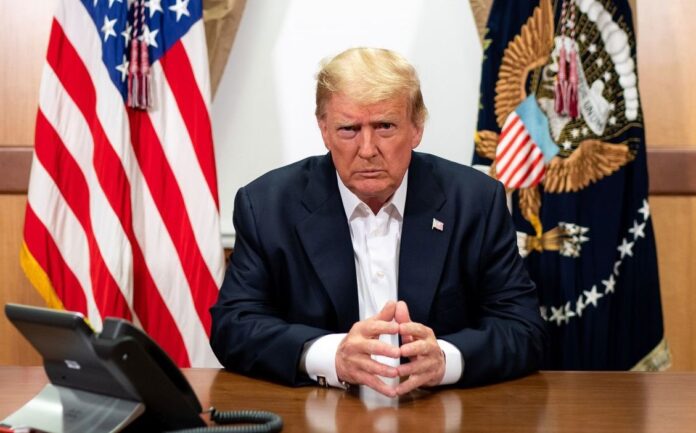In a dramatic shift in global trade policy, President Donald Trump has imposed broad new tariffs on all imported goods. The announcement, made in a White House speech, signals a major economic move that will impact global markets.
Under the new policy, a 10% baseline tariff will apply to all imports. However, more than 60 countries will face higher rates. Nigeria is among those affected, with a 14% tariff now imposed on Nigerian goods entering the United States.
Trump defended the decision, saying it was necessary to address unfair trade practices that have hurt American industries.
“This is our declaration of economic independence,” he said. “For over 50 years, we have been looted, pillaged, and plundered by nations near and far.”
President Trump signs an Executive Order in the Rose Garden, instituting reciprocal tariffs on countries throughout the world… pic.twitter.com/uVYF6IiY9L
— Dan Scavino (@Scavino47) April 2, 2025
The White House confirmed that the 10% base tariff will start on April 5, while country-specific tariffs, including Nigeria’s, will take effect on April 9.
Nigeria’s Trade With The U.S.
According to 2023 data from the Observatory of Economic Complexity (OEC), Nigeria exported $6.29 billion worth of goods to the U.S. The top exports included:
- Crude Petroleum: $4.73 billion
- Petroleum Gas: $920 million
- Nitrogenous Fertilizers: $167 million
Over the past five years, Nigerian exports to the U.S. have grown at an annualized rate of 1.59%, increasing from $5.81 billion in 2018 to $6.29 billion in 2023.
However, the new tariffs could change this trend. Nigerian exports may become less competitive in the U.S. market due to higher costs.
Global Reactions And Economic Concerns
Trump’s decision has caused widespread concern among global economic analysts. Ken Rogoff, a former International Monetary Fund (IMF) chief economist, described it as a “nuclear bomb on the global trading system.”
The U.S. Congressional Budget Office estimated that the tariffs could generate $2.2 trillion in revenue by 2034. However, analysts warn they could also lead to higher prices for American consumers and a slowdown in global trade.

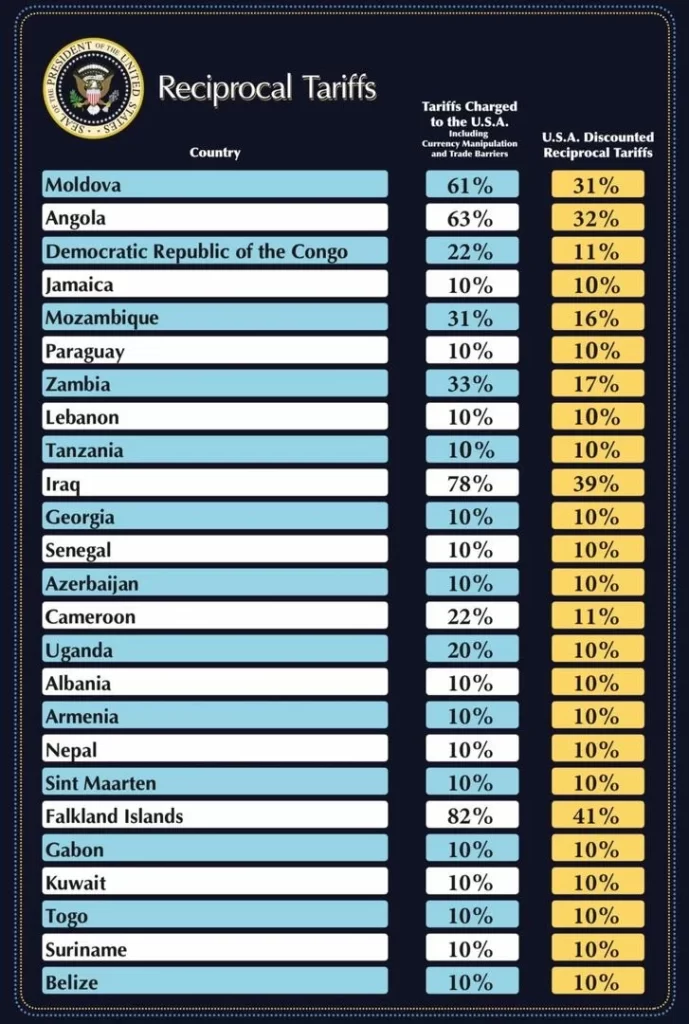
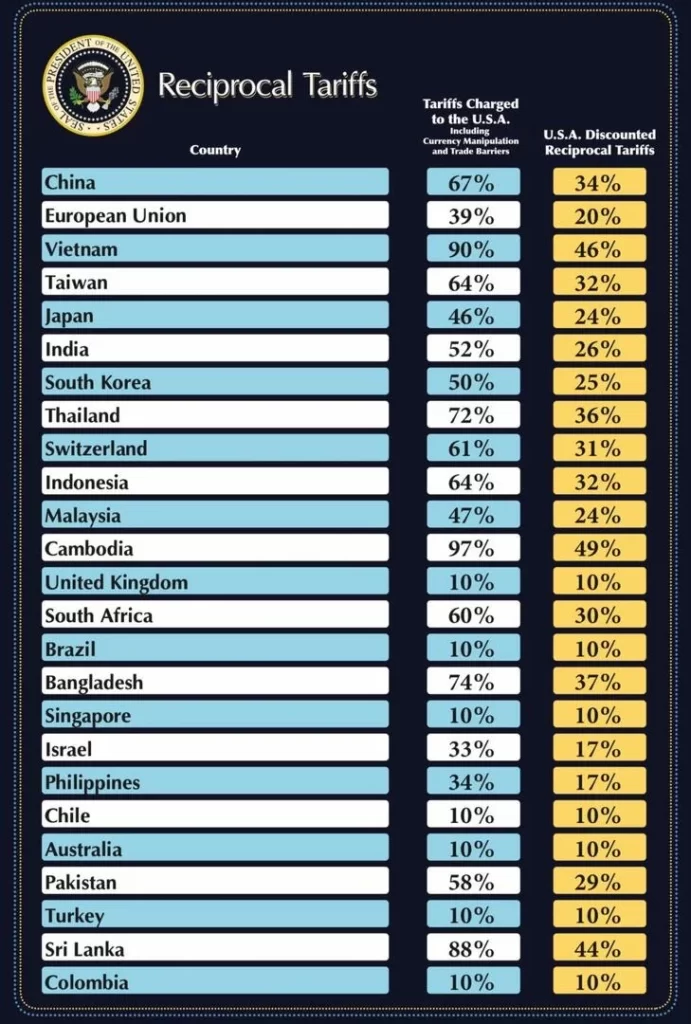
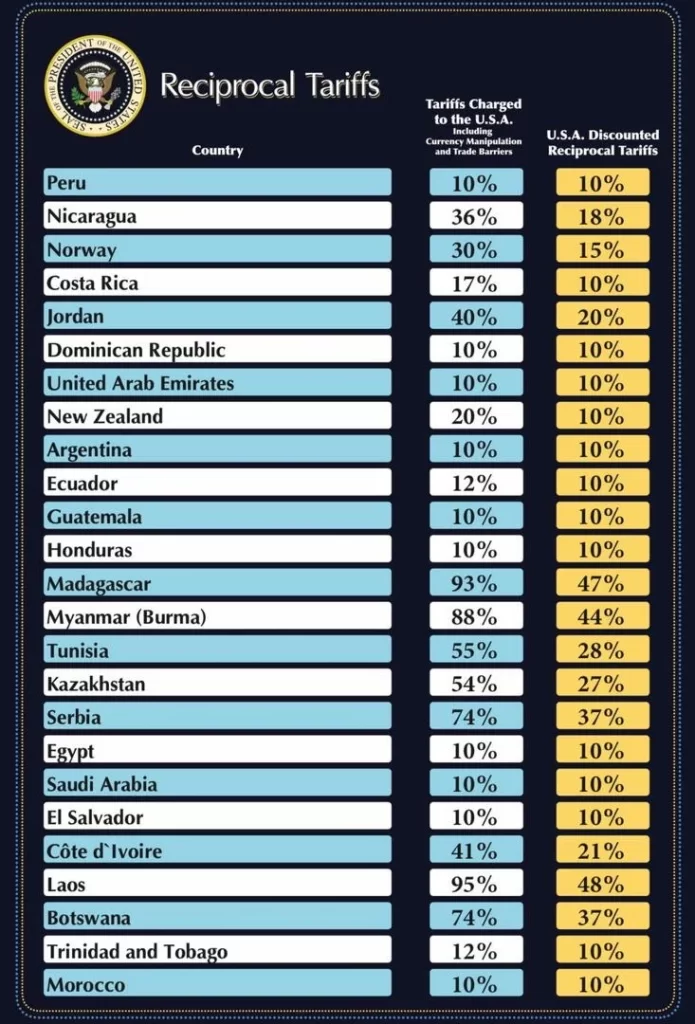
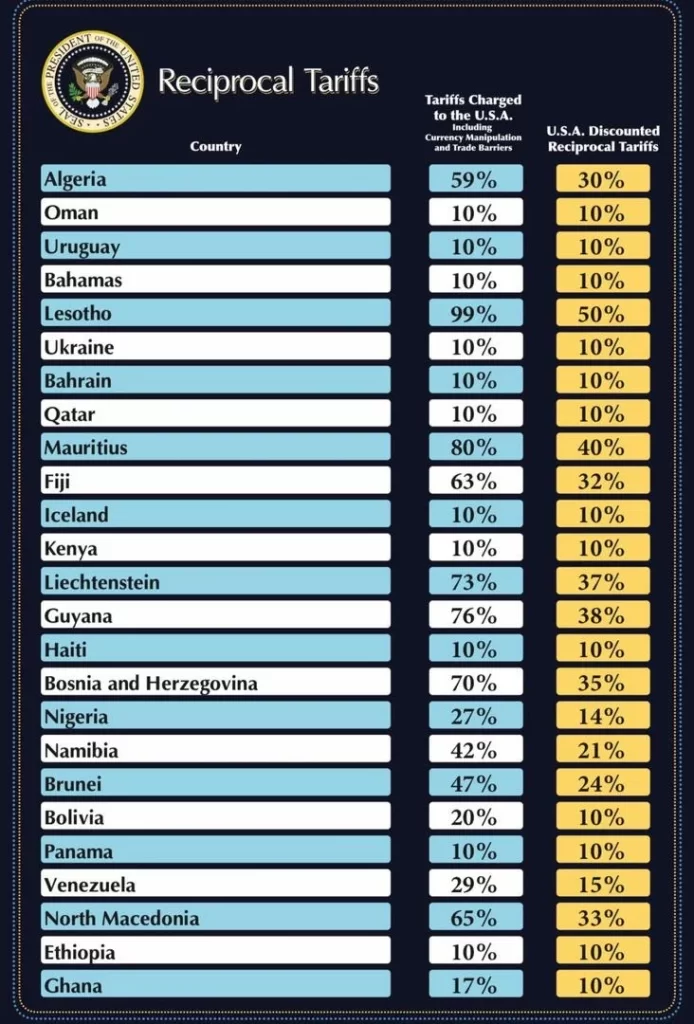
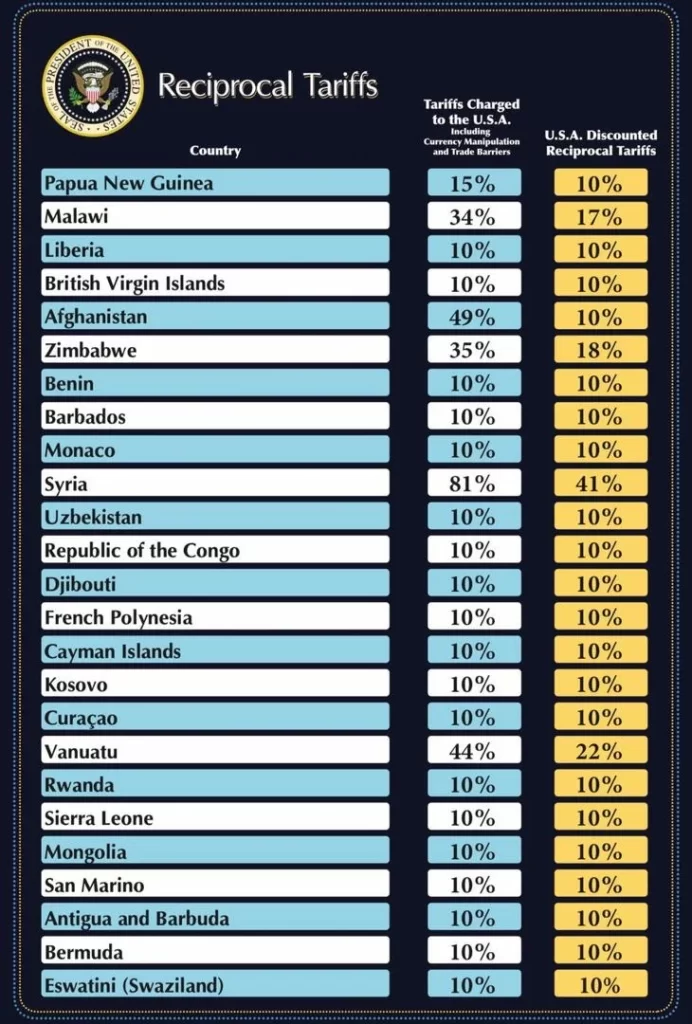
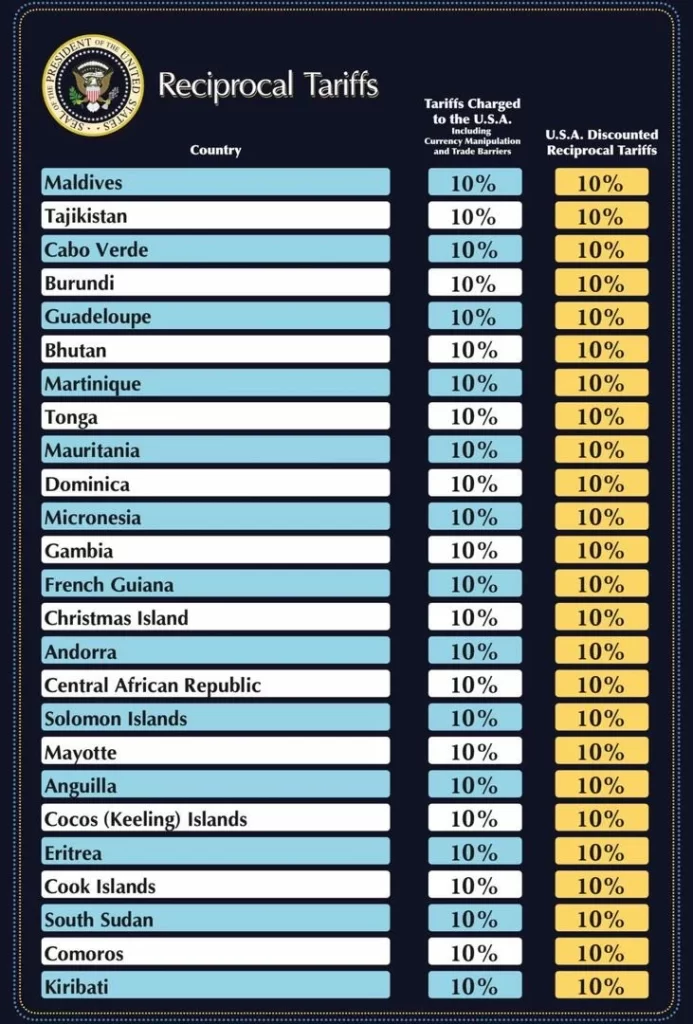
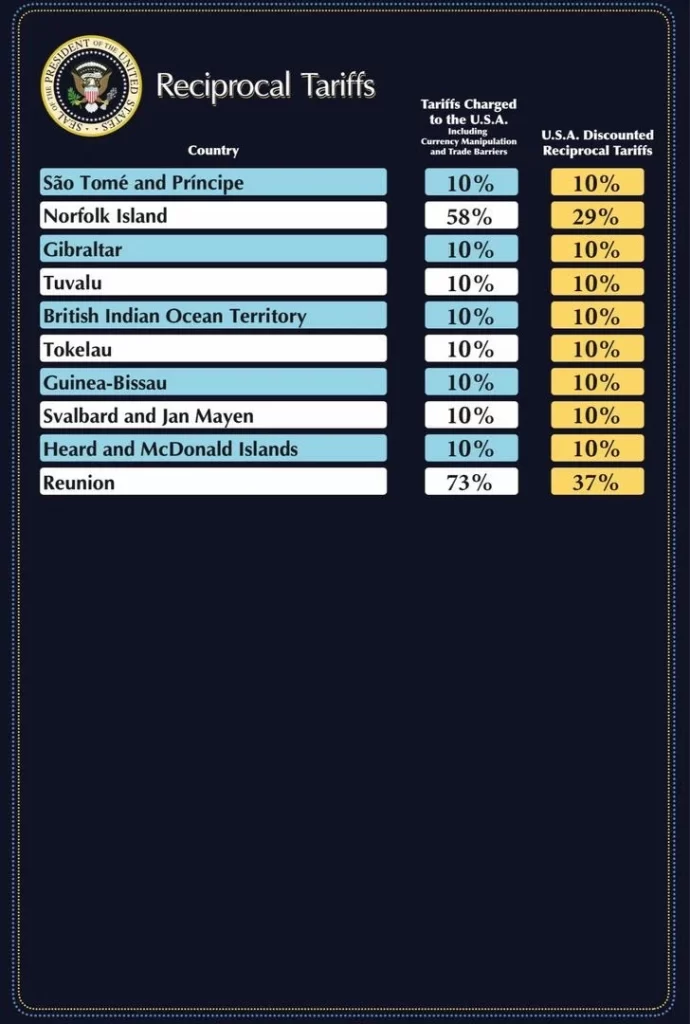
In response to the new tariffs, several countries have threatened retaliatory measures. China’s commerce ministry vowed “resolute countermeasures”, while European Commission President Ursula von der Leyen warned of potential EU tariffs on U.S. goods if negotiations fail.
Despite global backlash, Trump remains firm. “Today, we are standing up for the American worker,” he said. “We are finally putting America first.”
With the new tariffs set to take effect soon, businesses and governments worldwide are preparing for a major shift in global trade relations.
Like 👍, Comment, share this article, and Follow us on our social media handles.



